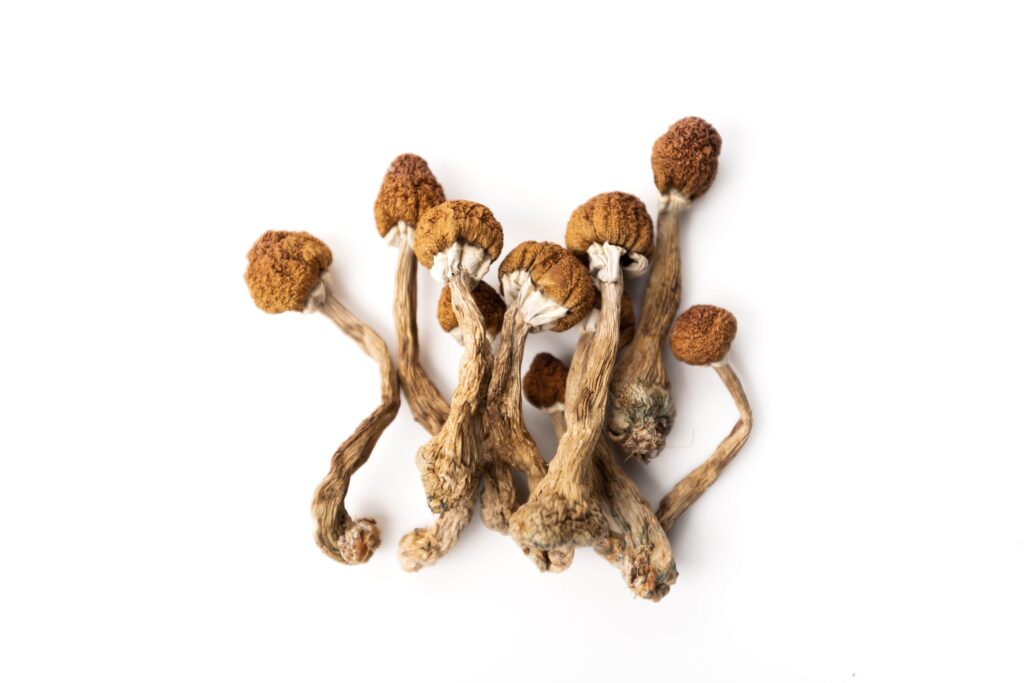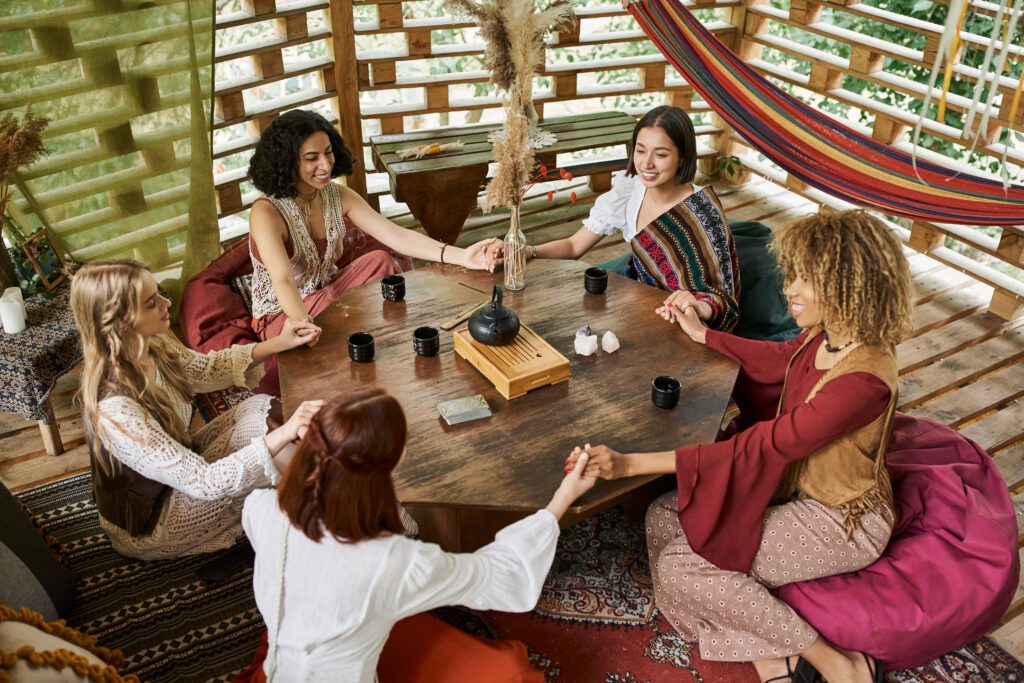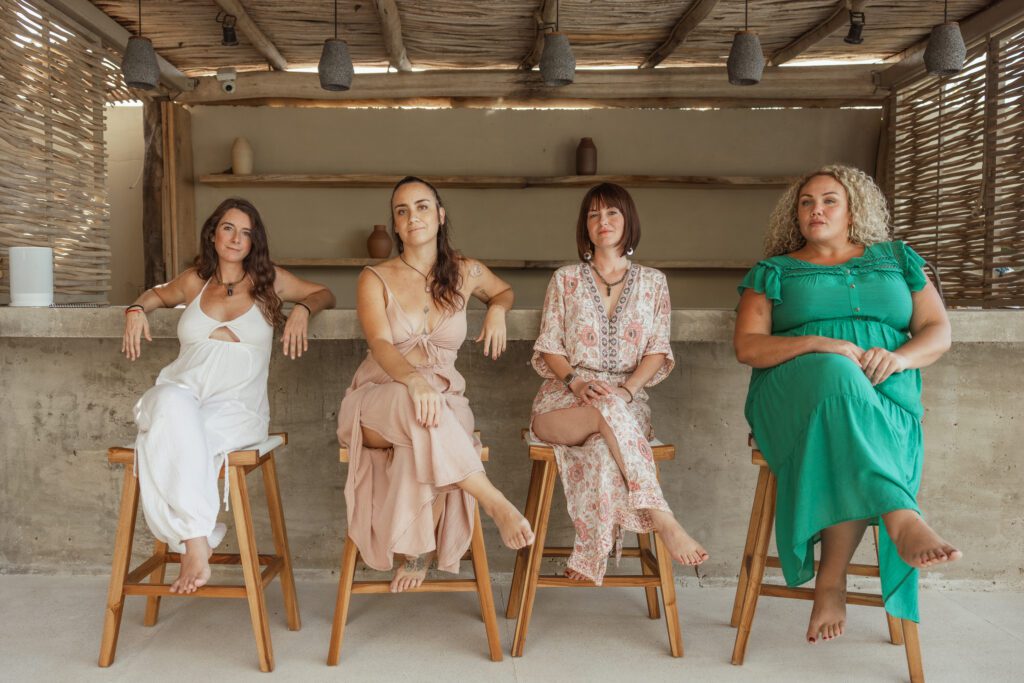Psilocybin, the active compound in magic mushrooms, is emerging as a powerful tool in treating alcohol addiction. Backed by science and real-life transformations, for some, it can offer lasting change where traditional methods often fail.
Alcohol Use Disorder is more than just a drinking problem—it’s a deeply rooted, often lifelong battle that entangles trauma, shame, and a search for relief.
For decades, we’ve leaned on conventional treatments like talk therapy, 12-step programs, or medications that sometimes help, but often don’t go far enough.
Having guided over 1,000 guests through psilocybin experiences, we’ve have witnessed something extraordinary: the way psilocybin can interrupt this cycle in ways that science is just beginning to explain.
It doesn’t offer a quick fix. But when used with care, intention, and proper integration, it opens a door to something many people haven’t felt in years, hope.
If you’ve ever wondered whether psilocybin could help free you—or someone you love—from alcohol’s grip, keep reading. The answers might surprise you.
What Is Psilocybin and How Does It Work?

On a chemical level, psilocybin is converted into psilocin in the body, which interacts directly with serotonin receptors—particularly the 5-HT2A receptor. This receptor plays a huge role in mood regulation, perception, and cognition.
But unlike antidepressants, which gently nudge these pathways over time, psilocybin creates an immediate and powerful shift in how the brain processes thoughts, patterns, and pain.
One of the most exciting aspects of psilocybin is how it impacts neuroplasticity—the brain’s ability to rewire itself. That’s a game-changer when you’re dealing with deeply ingrained behaviors like addiction.
Here’s what that means in practice:
- Serotonin Reset: Psilocybin acts on serotonin receptors to shift mood and perception rapidly.
- Increased Neuroplasticity: The brain becomes more flexible, allowing new thought patterns to emerge.
- DMN Modulation: Temporarily quiets the inner critic and offers space for big-picture insight.
- Non-Addictive by Nature: Unlike alcohol or opioids, psilocybin is not habit-forming—there’s no chemical hook.
Now, let’s answer the question we get all the time: Is it the drug that heals, or the experience? The truth is—it’s both. The medicine opens the door, but it’s the journey through it, and how you integrate what you learn, that brings real change.
And no, you won’t trade one addiction for another. In fact, many of our guests leave with less desire to reach for any substance.
Clinical Research – What Do the Studies Say?
The science behind psilocybin isn’t just promising—it’s profound.
One of the most well-known studies was led by Dr. Michael Bogenschutz at NYU. In this groundbreaking trial, participants with Alcohol Use Disorder (AUD) received two doses of psilocybin, alongside structured psychotherapy. The results? Nothing short of remarkable.
Heavy drinking dropped by 83% in the psilocybin group. Even more powerful—48% of participants stopped drinking altogether for at least eight months. Compare that to the placebo group, where only 24% remained abstinent. That’s a massive shift in outcomes, especially for those who had tried everything else.
Another trial out of Switzerland didn’t see the same dramatic abstinence rates, but it still confirmed that cravings and alcohol use decreased in both placebo and psilocybin groups. The researchers emphasized that the setting, therapeutic support, and participant readiness played major roles in outcomes.
So what’s the real secret here? It’s not just the psilocybin—it’s what surrounds it.
Here’s what makes the biggest difference:
- Therapeutic Alliance: A trusting relationship with a guide or therapist is essential.
- Preparation: Helping guests clarify their intentions and calm their nervous system before the journey.
- The Journey Itself: Safe, ceremonial space where emotional breakthroughs happen.
- Integration: Support in translating insights into everyday change—long after the retreat ends.
Real People, Real Stories – Psilocybin Changed My Life

Numbers are powerful but meaningless without real life stories to back it up.
Guests often describe a “before and after” in their lives—moments that didn’t just feel profound, but actually changed how they show up in the world.
Here are a few sentiments that echo through so many of the testimonials we hear:
- “It killed my desire to drink or smoke cannabis.”
- “My psilocybin experience made me finally get into AA.”
- “I credit it for breaking my binge-eating cycle too.”
These are the ripple effects we’re talking about. When someone feels safe enough to release old wounds and rewrite their story, the healing doesn’t stop with alcohol—it spreads into every aspect of their life.
Psychedelics vs. Other Treatments – How Does It Compare?
There are a lot of tools out there for treating alcohol addiction. Medications like naltrexone, acamprosate, and disulfiram are FDA-approved and can help manage cravings or block the effects of alcohol.
For some people, they’re a helpful piece of the puzzle. But for many of our guests, they’ve already tried these routes—and still felt like the root cause had not been addressed.
Ketamine is another option that’s gained popularity. It’s approved for depression and is sometimes used off-label for addiction. While it can offer relief and even powerful insights, it works differently than psilocybin. Ketamine is a dissociative, meaning it can create distance from pain. Psilocybin, on the other hand, helps you meet it head-on.
What we love about psilocybin is that it doesn’t just treat symptoms—it invites you to reconnect with yourself. That’s where real transformation begins.
Here’s a quick comparison of how they differ:
- Naltrexone, Acamprosate, Disulfiram:
Suppress cravings, reduce pleasure from alcohol, or make you physically sick if you drink. Helpful, but don’t address the emotional root. - Ketamine:
Offers temporary relief and insight, but is short-acting and often requires multiple sessions. May lack the spiritual depth or emotional integration many people seek. - Psilocybin:
Opens the door to deeper self-exploration, rewires thought patterns, and supports long-term change—especially when combined with therapy and integration.
Microdosing – Can Small Doses Make a Difference?
Microdosing is the practice of taking sub-perceptual doses of psilocybin—small enough that you don’t feel “high”, but just enough to gently shift your mood, focus, or energy.
Some people find that microdosing helps them feel more grounded, optimistic, or emotionally balanced. We’ve heard guests say it made their mornings brighter and their inner dialogue softer. But others admit that without the right mindset, they still found themselves simply going through the motions.
That’s because microdosing isn’t a magic switch. It’s a tool. And like any tool, it only works when it’s used properly.
I always say: It’s not just what you’re taking. It’s how, why, and with what support.
If your intention is unclear—or if there’s no structure—you might just find yourself on a slightly altered version of the same old path.
Here’s how to make microdosing truly meaningful:
- Set a Clear Intention: Ask yourself why you’re doing it. What are you hoping to shift or release
- Create a Ritual or Routine: Pair microdosing with journaling, meditation, or nature time. Make it sacred.
- Track Your Behavior: Are you still drinking? Escaping? Notice your habits without judgment, but stay honest.
- Get Support: Having a coach, guide, or integration partner can make all the difference. You don’t have to navigate this alone.
- Don’t Skip the Deeper Work: Microdosing can open the door, but real breakthroughs often come from full-dose journeys supported by intention and integration.
The Role of Integration – It’s Not Just the Trip

Here’s the truth most people don’t understand: the psychedelic journey is just the beginning.
Yes, the trip can be life-changing. Yes, you might have visions or breakthroughs. But without preparation and integration, those insights can fade, feel confusing—or worse, leave you feeling lost.
Integration is where the magic becomes meaningful. It’s how you bring the lessons of the experience into your real life, relationships, and daily habits. Without it, even the most beautiful ceremony can become just another memory.
We never send guests home without a roadmap.
We offer:
- Emotional Support before and after your journey, so you feel safe, grounded, and seen.
- Structured Guidance to help you set clear intentions and process what comes up.
- Integration Coaching that helps translate insights into action—so the change lasts.
We’ve seen people return from other retreats confused, overwhelmed, or even disheartened. They had the journey, but no one helped them make sense of it. And without that support, the old patterns sneak right back in.
Is Psilocybin Right for Me?
So, you’re wondering, “Could this actually work for me?”
The answer depends on your story, your readiness, and your support system. Psilocybin isn’t for everyone, but when it’s the right fit, it can be life-changing.
We’ve seen incredible transformations in guests who’ve tried everything else. People who’ve been let down by SSRIs or talk therapy. High-functioning professionals who are “holding it all together” on the outside but quietly unraveling inside. Trauma survivors searching for peace in a body that’s never felt safe.
These are the people who come to The Buena Vida feeling exhausted—but leave feeling alive. That said, there are some situations where psilocybin may not be a safe or appropriate choice.
This work may not be the right fit if:
- You are on high-dose or long-term benzodiazepines and cannot safely taper.
- You’re navigating unmanaged psychosis, bipolar I disorder, or schizophrenia.
- You’re actively in crisis without a support system or stability.
Psilocybin opens the psyche—it doesn’t mask or numb. That’s why it’s so effective for healing, but also why careful screening is essential.
We take this responsibility seriously. Every guest goes through a personalized application and interview process. We talk through medical history, emotional readiness, and your hopes for healing.
And yes—legality matters. That’s why we operate where psilocybin use is ethically facilitated, locally compliant, and spiritually respectful. We work alongside trained guides and trusted medicine carriers, ensuring you’re held every step of the way.
Our guests tell us that what sets us apart isn’t just the beautiful setting—it’s the depth of care. The way we listen. The way we honor your fear, your dreams, and your desire to break free.
A Tool, Not a Magic Pill
Psilocybin isn’t a magic pill—but it is a powerful tool for healing alcohol addiction at the root.
Backed by science, shaped by personal stories, and amplified through guided support, it offers real hope where traditional methods often fall short.
At The Buena Vida, we hold this work with deep reverence. Through intentional preparation, immersive experiences, and compassionate integration, we help you transform insight into lasting change.
Ready to break free from old patterns and rediscover yourself?
Explore our retreats and take the first step toward healing.

